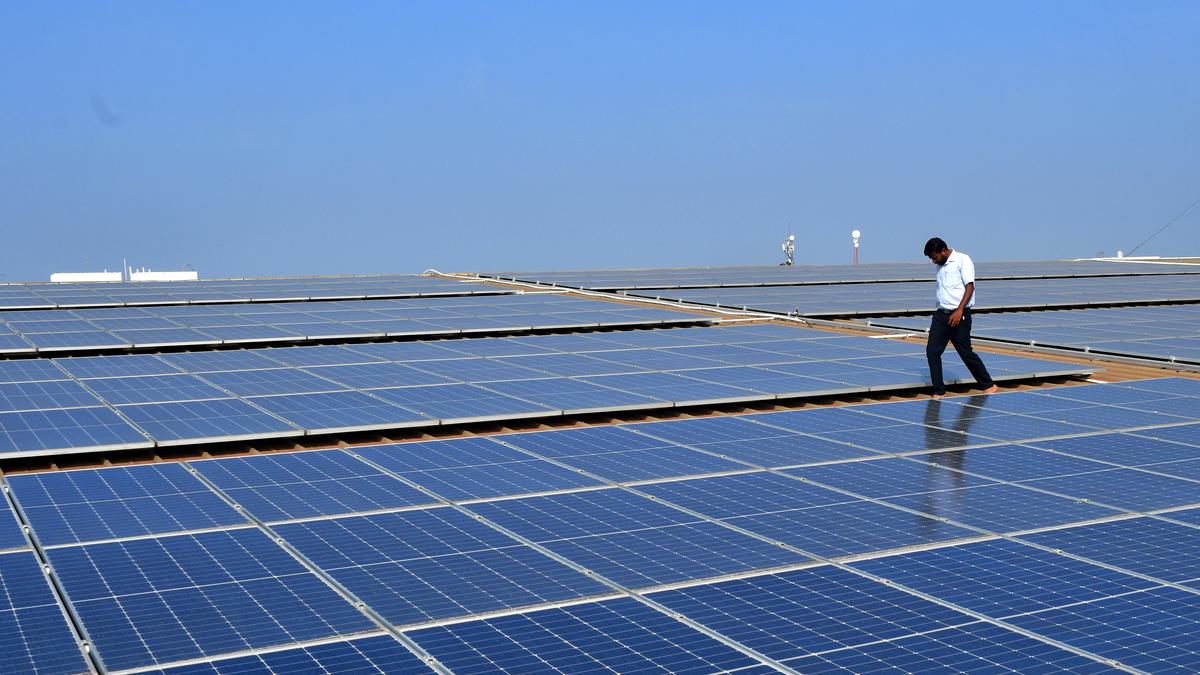
Can India’s textile sector pivot to comply with global ESG norms?
The Hindu
India's textile and apparel sector invests in sustainable practices to meet EU's ESG goals & European Green Deal.
The textile and apparel sector in Tamil Nadu contributes more than 50% of installed renewable energy capacity in the State; nearly 300 textile processing units in Tiruppur are connected to common effluent treatment plants with zero liquid discharge; in Panipat, Haryana, open-end spinners use only recycled fibre; and India recycles almost 90% of its used PET bottles into fibre.
These are among some sustainable practices that India’s textile and clothing sector has invested in over the past two decades.
Now, as the European Union (EU’s) moves towards implementing its environmental, social, and governance (ESG) goals and the European Green Deal takes effect in 2026, several global brands are insisting on sustainable production and supply chains.
There is palpable concern in India’s textile sector, dominated by small businesses - the Micro, Small and Medium Enterprises (MSMEs), about the impact new rules like EU’s Carbon Border Adjustment Mechanism (CBAM) would have, aside from complying with the ESG standards. But there is also recognition that this might well be the moment to attempt a paradigm shift in sourcing, production, pricing and supply processes, to cement the sector’s position as a top global supplier.
Acknowledging ESG demands of overseas buyers as “significant disruptors”, Tamanna Chatuurvedi, deputy secretary general, Apparel Export Promotion Council (AEPC), says it is a “do or die situation” for India’s textile and apparel sector.
She says exporters can leverage benefits of India’s potential free-trade agreement with the EU only if they invest in sustainability. Ms. Chatuurvedi adds this also requires considerable documentation of various sustainable and inclusive social practices the sector has already achieved.
Indeed, some of it, like the social indicator of employing rural women in large numbers, have helped the industry.











